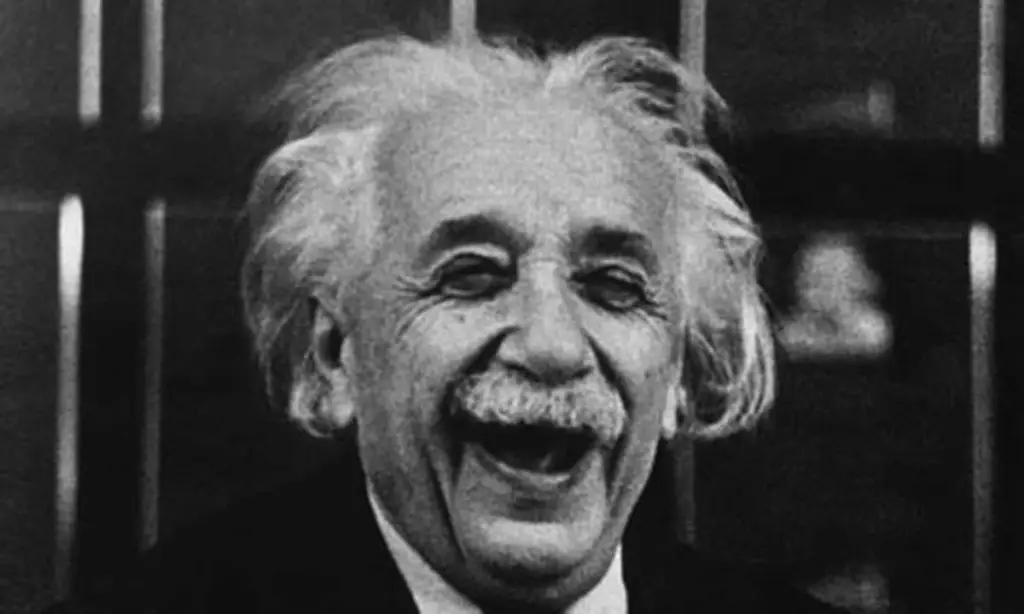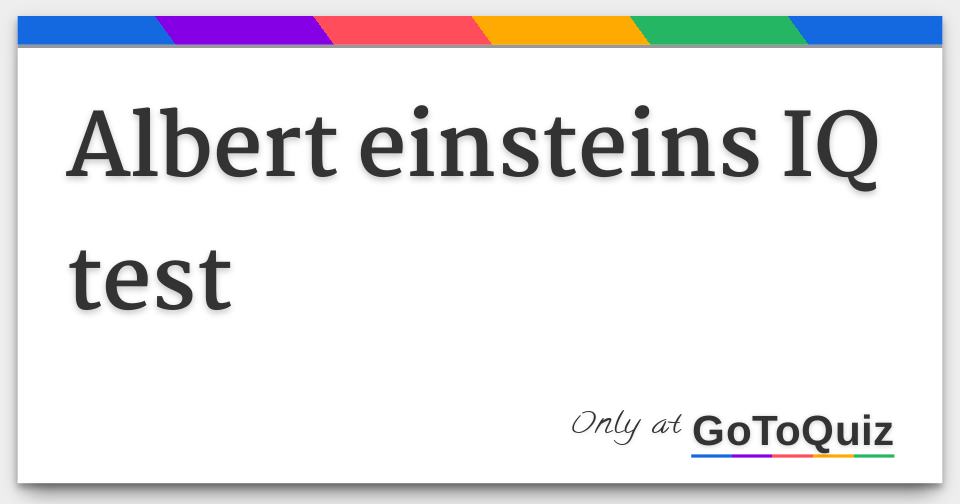Albert Einstein, one of the most celebrated minds in human history, has left an indelible mark on the world of science and beyond. His contributions to theoretical physics have reshaped our understanding of the universe, and his intellectual prowess has long been a topic of fascination. But just how brilliant was Albert Einstein's IQ? This article delves into the genius of Einstein, exploring his intellectual capacity, his groundbreaking discoveries, and the legacy he left behind.
Understanding Einstein's IQ goes beyond merely assigning a number to his intelligence. It involves examining his thought processes, problem-solving abilities, and the revolutionary ideas he introduced to the scientific community. Einstein's work continues to inspire scientists, philosophers, and thinkers worldwide, making him a timeless symbol of human potential.
Through this article, we aim to unravel the mysteries surrounding Einstein's intellect while providing insights into the factors that contributed to his extraordinary achievements. Whether you're a science enthusiast or simply curious about one of history's greatest minds, this exploration will offer valuable knowledge and inspiration.
Read also:Exploring Missy Elliotts Journey As A Mother Through Her Sons Pictures
Table of Contents
- Biography of Albert Einstein
- Understanding Albert Einstein's IQ
- Early Life and Education
- Scientific Contributions
- Key Theories and Discoveries
- Intellectual Capacity and Problem-Solving
- Einstein's Legacy
- Famous Quotes by Albert Einstein
- Influence on Modern Science
- Conclusion: The Genius of Einstein
Biography of Albert Einstein
Personal Data and Biodata
Before diving into the intricacies of Albert Einstein's IQ, it's essential to understand the man behind the genius. Below is a brief overview of his personal details:
| Full Name | Albert Einstein |
|---|---|
| Date of Birth | March 14, 1879 |
| Place of Birth | Ulm, Kingdom of Württemberg, German Empire |
| Date of Death | April 18, 1955 |
| Place of Death | Princeton, New Jersey, USA |
| Profession | Theoretical Physicist |
| Spouse | Mileva Marić (1903–1919), Elsa Einstein (1919–1936) |
Understanding Albert Einstein's IQ
Albert Einstein's IQ has been a subject of speculation and fascination for decades. While there is no verified record of Einstein's actual IQ score, estimates suggest it was around 160. However, IQ alone does not fully capture the depth of his intellectual capabilities.
Einstein's brilliance was not confined to numerical intelligence but extended to his ability to think abstractly, solve complex problems, and challenge established paradigms. His innovative approach to science revolutionized the field of physics, earning him the title of "the father of modern physics."
Early Life and Education
Growing Up in Germany
Einstein's early years were marked by a natural curiosity and a penchant for questioning the world around him. Born into a Jewish family in Germany, he displayed an early interest in mathematics and physics. Despite initial struggles in traditional schooling, Einstein's passion for learning never wavered.
His parents recognized his potential and encouraged his intellectual pursuits. At the age of 16, Einstein renounced his German citizenship and moved to Switzerland, where he continued his education. His time at the Swiss Federal Polytechnic in Zurich laid the foundation for his future achievements.
Scientific Contributions
A Revolutionary Thinker
Einstein's scientific contributions are vast and varied, encompassing numerous fields within physics. His work on the theory of relativity, quantum mechanics, and statistical mechanics has profoundly impacted modern science. Einstein's ability to think outside conventional boundaries allowed him to develop groundbreaking theories that continue to influence scientific research today.
Read also:Masa49 Com Mms Revolutionizing Multimedia Messaging
One of his most famous contributions is the equation E=mc², which demonstrates the equivalence of energy and mass. This equation has far-reaching implications in fields ranging from nuclear energy to cosmology.
Key Theories and Discoveries
The Theory of Relativity
The theory of relativity is perhaps Einstein's most celebrated achievement. Comprising both special and general relativity, this theory fundamentally altered our understanding of space, time, and gravity. Special relativity introduced the concept that the laws of physics are the same for all non-accelerating observers, while general relativity expanded this idea to include the effects of gravity.
- Special Relativity: Revolutionized the concept of time and space.
- General Relativity: Explained gravity as the curvature of spacetime.
Intellectual Capacity and Problem-Solving
Thinking Beyond the Norm
Einstein's intellectual capacity was characterized by his ability to think creatively and challenge established norms. His problem-solving skills were evident in his approach to scientific inquiry, where he often employed thought experiments to explore complex ideas.
His famous thought experiment involving a train and a beam of light demonstrated his capacity for abstract reasoning. By visualizing scenarios beyond the limitations of physical experiments, Einstein was able to develop theories that defied conventional wisdom.
Einstein's Legacy
Inspiring Future Generations
The legacy of Albert Einstein extends far beyond the realm of science. His work has inspired countless individuals to pursue knowledge and strive for excellence. Einstein's commitment to peace and humanitarian causes further solidifies his place as a global icon.
His influence can be seen in the advancements of modern technology, from GPS systems to medical imaging. Einstein's ideas continue to drive scientific exploration and innovation, ensuring his relevance in contemporary society.
Famous Quotes by Albert Einstein
Words of Wisdom
Einstein's intellect was matched by his eloquence, as evidenced by his many memorable quotes. Below are a few that encapsulate his philosophy and worldview:
- "Imagination is more important than knowledge."
- "Life is like riding a bicycle. To keep your balance, you must keep moving."
- "Peace cannot be kept by force; it can only be achieved by understanding."
Influence on Modern Science
Shaping the Future
Einstein's impact on modern science is undeniable. His theories have paved the way for numerous advancements, from the development of nuclear energy to the exploration of the cosmos. Scientists continue to build upon his work, expanding our understanding of the universe.
His contributions to quantum mechanics, despite his reservations about certain aspects of the theory, have been instrumental in shaping modern physics. Einstein's skepticism and relentless pursuit of truth have inspired generations of scientists to question and explore the unknown.
Conclusion: The Genius of Einstein
Albert Einstein's brilliance transcends the limitations of IQ scores and numerical measures of intelligence. His intellectual capacity, coupled with his creativity and dedication to science, has left an indelible mark on human history. Through his groundbreaking theories and unwavering commitment to truth, Einstein continues to inspire and challenge us to push the boundaries of knowledge.
We invite you to share your thoughts and insights in the comments below. Explore our other articles to deepen your understanding of science, history, and the remarkable individuals who have shaped our world. Together, let's continue the legacy of discovery and innovation inspired by Albert Einstein's brilliant mind.
Reference Sources:
- Isaacson, Walter. "Einstein: His Life and Universe." Simon & Schuster, 2007.
- Calaprice, Alice. "The Quotable Einstein." Princeton University Press, 2018.
- https://www.biography.com/scientist/albert-einstein


